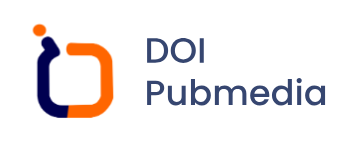Collaboration of multi-stakeholder in integrated aid model for creative MSMEs in the tourism sector
DOI:
https://doi.org/10.69812/itj.v1i1.16Keywords:
Multi-Stakeholders, Tourism Sector, small and medium enterprises, Assitance ModelAbstract
The goal of the study is to develop an integrated support model for small and medium-sized tourist firms that involves multi-stakeholder engagement. Specifically, this research identifies the mentoring model needed by SMEs in the tourism sector in Guci Hot Spring Tourism and Tegal Regency and navigates mentoring strategies that suit their needs by including multi-stakeholders. This research uses a qualitative approach with a case study of SMEs in the tourist area of Guci Hot Springs, Tegal Regency. Focus groups and in-depth interviews with SMEs in the tourist industry were employed for the purpose of gathering data. We analyzed 20 informants representing the SME sector in Guci Hot Springs consisting of fashion, culinary, and craft SMEs. Based on the qualitative data analysis carried out, the results state that the integrated assistance model covers substantive points such as marketing development, business permits and SME business entities, social media and information technology, and financial management. For more effective assistance, stakeholder involvement is very necessary. This study shows that stakeholders need their role and capacity to coordinate knowledge, management, and entrepreneurial spirit among SMEs in the tourism sector. As a result, this study's findings advance knowledge of how SMEs in the tourist industry may engage many stakeholders by using an integrated mentoring strategy.
Downloads
References
Arcos-Pumarola, J., Paquin, A. G., & Sitges, M. H. (2023). The use of intangible heritage and creative industries as a tourism asset in the UNESCO creative cities network. Heliyon, 9(1). https://doi.org/10.1016/j.heliyon.2023.e13106
Ariwibowo, R., & Prasetyo, G. (2023). Reinventing Indonesia ’ s City Branding Strategy Through Conceptual Frameworks. Jurnal Bina Praja, 15(1), 123–143. https://doi.org/10.21787/jbp.15.2023.123-143
Arkum, D., & Amar, H. (2022). The Influence of Economic Growth, Human Development, Poverty and Unemployment on Income Distribution Inequality: Study in the Province of the Bangka Belitung Islands in 2005-2019. Jurnal Bina Praja, 14(3), 413–422. https://doi.org/10.21787/jbp.14.2022.413-422
Boix-Domenech, R., Peiró-Palomino, J., & Rausell-Köster, P. (2021). Creative industries and productivity in the European regions. Is there a Mediterranean effect? Regional Science Policy and Practice, 13(5), 1546–1564. https://doi.org/10.1111/rsp3.12395
Carlisle, S., Kunc, M., Jones, E., & Tiffin, S. (2013). Supporting innovation for tourism development through multi-stakeholder approaches: Experiences from Africa. Tourism Management, 35, 59–69. https://doi.org/10.1016/j.tourman.2012.05.010
Castaldi, C., Giuliani, E., Kyle, M., & Nuvolari, A. (2024). Are intellectual property rights working for society? Research Policy, 53(2), 104936. https://doi.org/10.1016/j.respol.2023.104936
Cehan, A., Eva, M., & Iațu, C. (2021). A multilayer network approach to tourism collaboration. Journal of Hospitality and Tourism Management, 46(20), 316–326. https://doi.org/10.1016/j.jhtm.2021.01.006
Cicerone, G., Crociata, A., & Mantegazzi, D. (2021). Cultural and creative industries and regional diversification: Does size matter? Papers in Regional Science, 100(3), 671–687. https://doi.org/10.1111/pirs.12585
Dellisanti, R. (2023). Spatial patterns of Cultural and Creative Industries: Creativity and filière behind concentration. Papers in Regional Science, 102(3), 533–564. https://doi.org/10.1111/pirs.12733
DitjenKI. (2023). Lindungi Kekayaan Intelektual, Majukan Ekonomi Kreatif. MEDIA HKI: Pemantik Inovasi & Kreasi.
Echavarría-Arcila, M. A., Correa, J. C., & Pérez-Gómez, A. M. (2023). Intellectual property for commercial ideas in technology markets: A system dynamics model. Journal of Open Innovation: Technology, Market, and Complexity, 9(2), 100041. https://doi.org/10.1016/j.joitmc.2023.100041
ERIA. (2021). Kajian Sektor Manufaktur Indonesia 2021.
Fahmi, F. Z., Krismiyaningsih, E., Sagala, S. A. H., & Rustiadi, S. (2023). Creative industries and disaster resilience: A focus on arts- and culture-based industries in Indonesia. International Journal of Disaster Risk Reduction, 99(November), 104136. https://doi.org/10.1016/j.ijdrr.2023.104136
Gizzi, M. C., & Rädiker, S. (2021). The Practice of Qualitative Data Analysis Research Examples Using MAXQDA. In Maxqda Press (Issue March). https://doi.org/10.36192/978-3-948768058
Gong, H., Yu, Z., & Hassink, R. (2023). Differentiated knowledge bases and catch-up in creative industries – A case of the online game industry in China. Geoforum, 141(July 2022), 103730. https://doi.org/10.1016/j.geoforum.2023.103730
Ho, C. Y., & Sheng, Y. (2022). Productivity advantage of large cities for creative industries. Papers in Regional Science, 101(6), 1289–1306. https://doi.org/10.1111/pirs.12708
Holford, W. D. (2019). The future of human creative knowledge work within the digital economy. Futures, 105(July 2017), 143–154. https://doi.org/10.1016/j.futures.2018.10.002
Kokkaew, N., Jokkaw, N., Peansupap, V., & Wipulanusat, W. (2022). Impacts of human resource management and knowledge management on non-financial organizational performance: Evidence of Thai infrastructure construction firms. Ain Shams Engineering Journal, 13(6), 101750. https://doi.org/10.1016/j.asej.2022.101750
Koleangan, A. P. C., Budhi, J., & Archangela, A. (2023). Analisis Pendorong Pembangunan UMKM Sektor Pariwisata dan Ekonomi Kreatif di Sulawesi Utara melalui Pendekatan Tourism Satelite Account ( TSA ) dan SWOT Analisis Pendorong Pembangunan UMKM Sektor Pariwisata dan Ekonomi Kreatif di Sulawesi Utara Melalui Pe. In A. Widiana, G. Hadiwidjaja, M. Sapulette, & E. Simarmata (Eds.), Membangun UMKM Pariwisata dan Ekonomi Kreatif di Indonesia Timur (pp. 50–73).
Landoni, P., Dell’era, C., Frattini, F., Messeni Petruzzelli, A., Verganti, R., & Manelli, L. (2020). Business model innovation in cultural and creative industries: Insights from three leading mobile gaming firms. Technovation, 92–93(July 2019), 102084. https://doi.org/10.1016/j.technovation.2019.102084
Li, P. Q., & Kovacs, J. F. (2021). Creative tourism and creative spectacles in China. Journal of Hospitality and Tourism Management, 49(January), 34–43. https://doi.org/10.1016/j.jhtm.2021.08.023
Malik, N., Wei, Y. “Max,” Appel, G., & Luo, L. (2023). Blockchain technology for creative industries: Current state and research opportunities. International Journal of Research in Marketing, 40(1), 38–48. https://doi.org/10.1016/j.ijresmar.2022.07.004
Mishra, S. K., & Kushwaha, H. (2023). Managing litigation risk through business legal expense insurance: Facilitators and inhibitors for MSMEs. IIMB Management Review, 35(1), 57–70. https://doi.org/10.1016/j.iimb.2023.04.002
Mishra, S., Kumar, R., & Kumar, M. (2023). Use of treated sewage or wastewater as an irrigation water for agricultural purposes- Environmental, health, and economic impacts. Total Environment Research Themes, 6(May), 100051. https://doi.org/10.1016/j.totert.2023.100051
OECD. (2023). OECD Infrastructure Governance Indicators Conceptual framework , design , OECD Infrastructure Governance Indicators.
Pujiyono, B., Kismartini, Yuwono, T., & Dwimawanti, I. H. (2019). Stakeholder analysis on tourism collaborative governance in Tanjung Lesung tourism, Pandeglang Regency, Banten Province, Indonesia. African Journal of Hospitality, Tourism and Leisure, 8(3), 1–11. https://www.ajhtl.com/
Remoaldo, P., Serra, J., Marujo, N., Alves, J., Gonçalves, A., Cabeça, S., & Duxbury, N. (2020). Profiling the participants in creative tourism activities: Case studies from small and medium sized cities and rural areas from Continental Portugal. Tourism Management Perspectives, 36(May), 100746. https://doi.org/10.1016/j.tmp.2020.100746
Richards, G. (2020). Designing creative places: The role of creative tourism. Annals of Tourism Research, 85(August), 102922. https://doi.org/10.1016/j.annals.2020.102922
Rosyadi, S., Kusuma, A. S., Fitrah, E., Haryanto, A., & Adawiyah, W. (2020). The Multi-Stakeholder’s Role in an Integrated Mentoring Model for SMEs in the Creative Economy Sector. SAGE Open, 10(4). https://doi.org/10.1177/2158244020963604
Saparita, R., Margono, T., Apriliyadi, E. K., Wijayanto, F., Soesanto, Q. M. B., Carolina, C., & Dyah, S. (2023). Inklusif Triple Helix Inklusif untuk UMKM Daerah (1st ed.). Penerbit BRIN.
Sarantou, M., Kugapi, O., & Huhmarniemi, M. (2021). Context mapping for creative tourism. Annals of Tourism Research, 86(June 2020), 103064. https://doi.org/10.1016/j.annals.2020.103064
Soundararajan, V., Brown, J. A., & Wicks, A. C. (2019). Can Multi-Stakeholder Initiatives Improve Global Supply Chains? Improving Deliberative Capacity with a Stakeholder Orientation. Business Ethics Quarterly, 29(3), 385–412. https://doi.org/10.1017/beq.2018.38
Stott, L. (2022). Partnership and Transformation; The Promise of Multi-stakeholder Collaboration in Context. Routledge. www.routledge.com/
Supriyanto, E. E. (2022). Blue Tourism: Treating Marine Ecosystems and Increasing The Potential of Maritime Tourism in Indonesia. Jurnal Kepariwisataan Indonesia: Jurnal Penelitian Dan Pengembangan Kepariwisataan Indonesia, 16(2), 138–148. https://doi.org/10.47608/jki.v16i22022.138-148
Sutjiatmi, S., Supriyanto, E. E., Suparto, D., & Rachmawati, M. (2023). Revitalizing the Branding of Tegal City As the Japanese of Indonesia. Jurnal Bina Praja, 15(1), 15–27. https://doi.org/10.21787/jbp.15.2023.15-27
Tang, J., & Liu, Q. (2024). Research in International Business and Finance R & D tax incentive policy , intellectual property right protection , and corporate innovation in an emerging market. Research in International Business and Finance, 69(June 2023), 102244. https://doi.org/10.1016/j.ribaf.2024.102244
van Laar, E., van Deursen, A. J. A. M., van Dijk, J. A. G. M., & de Haan, J. (2020). Measuring the levels of 21st-century digital skills among professionals working within the creative industries: A performance-based approach. Poetics, 81(December 2019), 101434. https://doi.org/10.1016/j.poetic.2020.101434
Wardana, L. W., Ahmad, Indrawati, A., Maula, F. I., Mahendra, A. M., Fatihin, M. K., Rahma, A., Nafisa, A. F., Putri, A. A., & Narmaditya, B. S. (2023). Do digital literacy and business sustainability matter for creative economy? The role of entrepreneurial attitude. Heliyon, 9(1), e12763. https://doi.org/10.1016/j.heliyon.2022.e12763
Yarnis, Y., Misnaniarti, M., & Windusari, Y. (2022). The Relationship between the Support Factor from SME Actors and the Officer Support regarding the Acceptance of the Importance of Distribution Permits for Pempek …. Budapest International Research and Critics Institute (BIRCI-Journal): Humanities and Social Sciences, 5(1), 3066–3074. https://www.bircu-journal.com/index.php/birci/article/view/3955
Zehrer, A., & Hallmann, K. (2015). A stakeholder perspective on policy indicators of destination competitiveness. Journal of Destination Marketing and Management, 4(2), 120–126. https://doi.org/10.1016/j.jdmm.2015.03.003
Downloads
Published
How to Cite
Issue
Section
License
Copyright (c) 2024 Eko Eddya Supriyanto, Diryo Suparto, Meida Rachmawati, Jumadil Saputra

This work is licensed under a Creative Commons Attribution-ShareAlike 4.0 International License.
You are free to:
- Share — copy and redistribute the material in any medium or format for any purpose, even commercially.
- Adapt — remix, transform, and build upon the material for any purpose, even commercially.
- The licensor cannot revoke these freedoms as long as you follow the license terms.
Under the following terms:
- Attribution — You must give appropriate credit, provide a link to the license, and indicate if changes were made . You may do so in any reasonable manner, but not in any way that suggests the licensor endorses you or your use.
- ShareAlike — If you remix, transform, or build upon the material, you must distribute your contributions under the same license as the original.
- No additional restrictions — You may not apply legal terms or technological measures that legally restrict others from doing anything the license permits.















